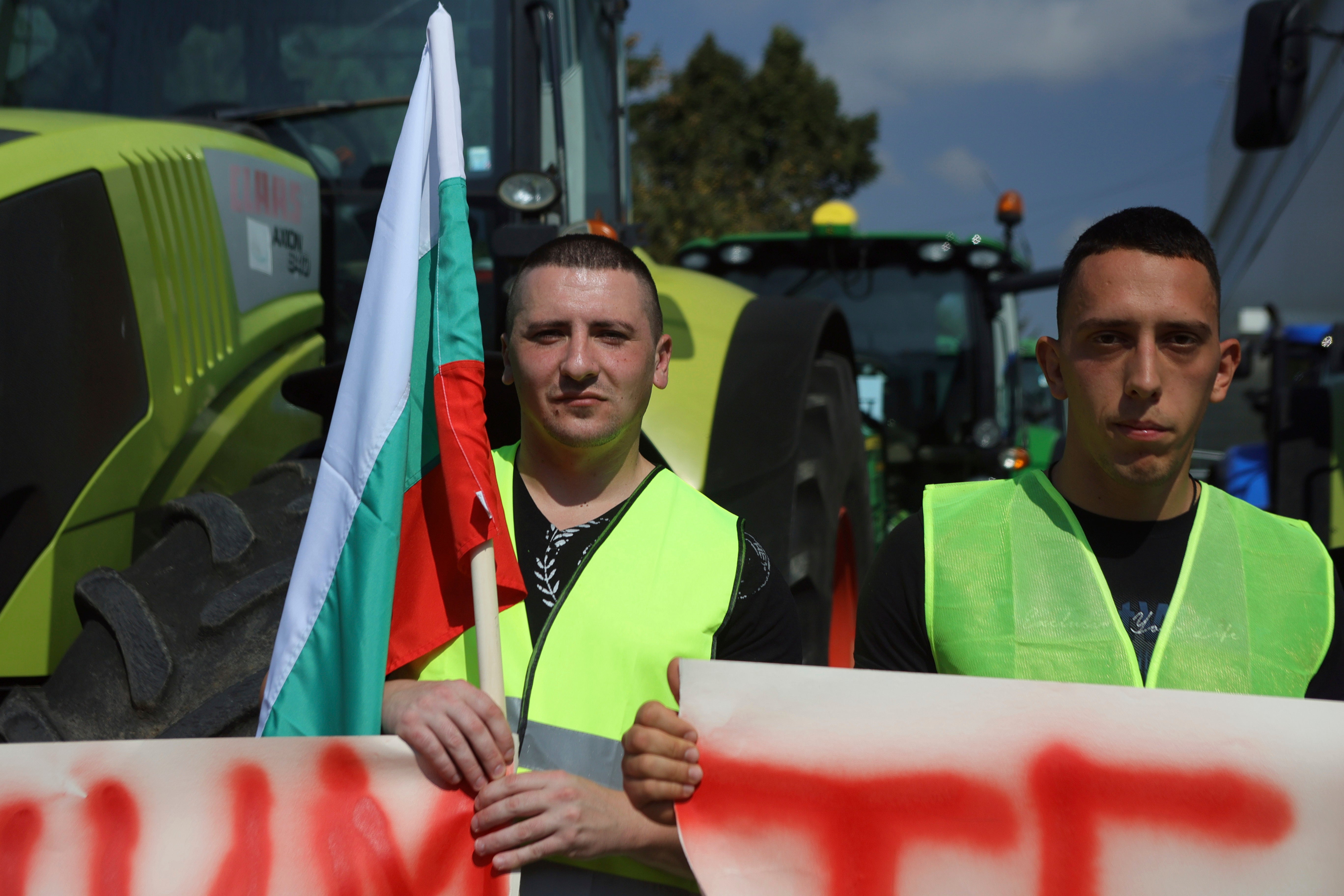Farmers across Bulgaria protest against Ukrainian grain as EU divide grows
Farmers across Bulgaria protested Monday after the government lifted a ban on food products from Ukraine, complaining that the move will cause an influx that drives down prices for local growers

Your support helps us to tell the story
From reproductive rights to climate change to Big Tech, The Independent is on the ground when the story is developing. Whether it's investigating the financials of Elon Musk's pro-Trump PAC or producing our latest documentary, 'The A Word', which shines a light on the American women fighting for reproductive rights, we know how important it is to parse out the facts from the messaging.
At such a critical moment in US history, we need reporters on the ground. Your donation allows us to keep sending journalists to speak to both sides of the story.
The Independent is trusted by Americans across the entire political spectrum. And unlike many other quality news outlets, we choose not to lock Americans out of our reporting and analysis with paywalls. We believe quality journalism should be available to everyone, paid for by those who can afford it.
Your support makes all the difference.Farmers across Bulgaria protested Monday after the government lifted a ban on food products from Ukraine, complaining that the move will cause an influx that drives down prices for local growers.
Hundreds of farmers around the country converged in their tractors, many of them waving national flags and honking horns as they blockaded main roads and disrupted traffic to express their anger.
The protest follows a decision Thursday by Bulgarian lawmakers to allow imports from Ukraine to resume, saying the ban had deprived the government of tax revenue and led to higher food prices.
A day later, the European Union also decided not to renew the overall ban on Ukrainian food heading to five member countries. Poland, Hungary and Slovakia have since unilaterally imposed their own blockades, threatening European unity on support for Ukraine against Russia’s invasion.
The rising tensions come after Russia halted a U.N.-brokered agreement last month to guarantee safe shipments of Ukrainian grain through the Black Sea to parts of the world struggling with hunger. It has left more expensive road, rail and river routes through Europe as largely the only way for Ukraine, a major global agricultural supplier, to export its food products, though there has been some limited ship movements to its ports.
Bulgaria’s National Association of Grain Producers said in a statement Sunday before the protests that farmers are facing “unprecedented difficulties” and called for a ban on a litany of food products from Ukraine. These include sunflower, wheat, corn and rapeseed, as well as crude oil, meat, fruits and vegetables, milk, honey and dairy products.
Ventsislav Mitkov, chairman of the United Farmers National Association in Bulgaria, said at a protest in the western town of Pernik, about 30 kilometers (18.5 miles) from the capital, Sofia, that they want to ban “absolutely everything.”
“Stop imports from Ukraine. We mean wheat, sunflower, canola, all cereals, honey,” he said. “We want increased control and immediate payment of the European measures.”
The EU said said “the market distortions” created by Ukrainian grain have disappeared. But farmers in the five member countries still complain that a glut of Ukrainian products is hurting their livelihoods.
The protesters in Bulgaria have vowed to continue demonstrations until their demands have been met.
“Low-quality, cheaper products than ours are sold in the shops,” Vassil Dzhorgov, a farmer from the eastern town of Radomir, told The Associated Press. “We are operating at a loss, and therefore we will give up.”
Ukraine agreed to put measures in place to control the export of wheat, corn, rapeseed and sunflower seeds to neighboring EU countries. It also will introduce proposals — for example, an export licensing system — within 30 days to avoid grain surges, the EU said.
___
McGrath reported from Manavgat, Turkey.